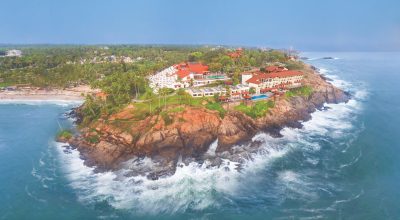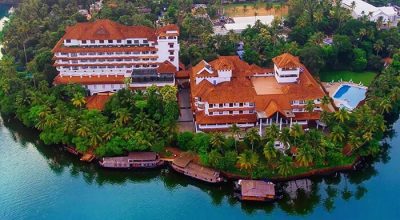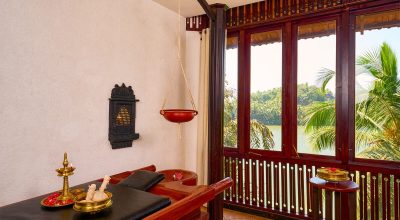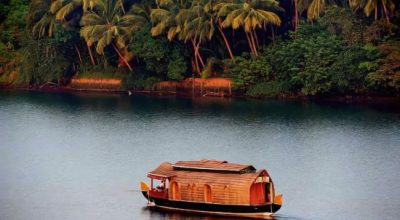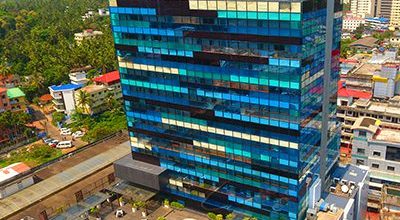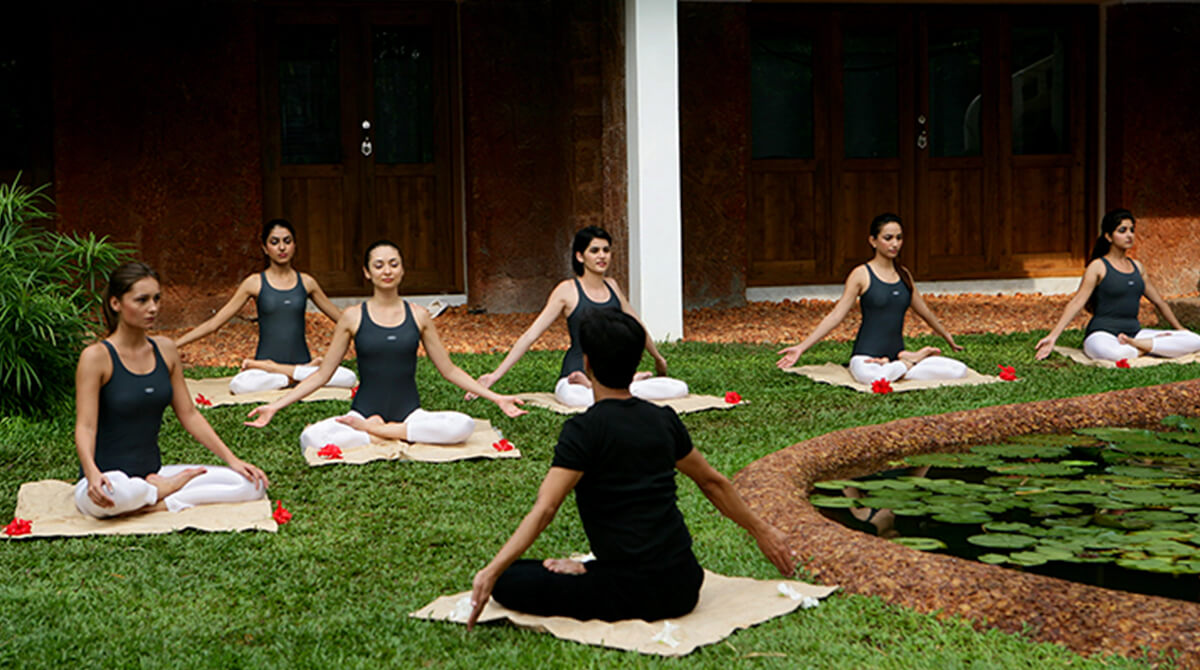Spectacular beaches, placid backwaters, cascading waterfalls and dense greenery are the best ways to describe the state of Kerala, located in the south-western part of India. With the Arabian Sea on one side and the Western Ghats on the inner side, the land mass left in between is densely occupied by the teaming population of Keralites. As you travel on the Highways to your destination, you realize that there are hardly any open spaces along the road; as you travel from one town to another, there is hardly any let-off in the habitation, only the road signs appear to change. Another thing that you realize as you travel the highways in Kerala is that the cities are generally cleaner than what you would find in other parts of India. It could be something to do with the 100% literacy of the state’s population though…
Judging by the bungalows on both sides of the highway, you get the impression of wealth, of well-kept homes, with beautiful courtyards and verandahs and flowers, flowers, everywhere! The people here also look good; obesity is a rarity among the Kerala people. Maybe it’s to do with their wholesome diet of fish, light coconut oil and lots of fresh vegetables and fruits.
Kerala can be classified as the land of lakes and rivers; about 44 rivers and 34 lakes form part of its exotic topography. The historical Kollam city of southern Kerala is a prosperous commercial center and located on the banks of one such lake, the Ashtamudi Lake. This lake has eight channels and stretches for about 16km. It’s the second largest brackish water lake in Kerala and forms part of the internationally famous backwaters. A houseboat cruise along its placid waters is the perfect anecdote to a restless mind. You come back invigorated and fresh from the short water-bound journey! Kollam is not difficult to access and is located about 70km away from Trivandrum, the capital of Kerala, and the nearest airport as well. It is also well connected by road and railways, such that it’s quite easy to get there. Though the hospitality industry is burgeoning in Kollam in response to the high tourist foot falls, the city only has one five star hotel, the Raviz hotel, which is set on the banks of the Ashtamudi Lake. This beautiful lake meanders its way to the sea through the scenic Neendakara estuary. The pristine beach of Kollam is located just about 2kms away from the city. Early mornings or late evenings are the best time to visit this beach as you commune with your inner self during these silent and peaceful times. Time seems to stand still as you gaze into the ever-rolling waves performing some ancient dance, coming forward and then rolling away, like a provocative lover out to taunt you.
It is in these silent watery locations that the mind can just let go of all inhibitions and let nature absorb all your stresses as you rejuvenate your mind and body. And what better way to do this than performing yoga and meditation on the banks of the gentle Ashtamudi Lake or on the beach as it gets bathed in the golden rays of another beautiful dawn.
Yoga is the ancient science that deals with the physical, mental and spiritual well-being of a person; this science was developed during the sixth or fifth centuries BCE and is closely related to Hinduism, Buddhism, and Jainism. Swami Vivekananda, a Hindu teacher, introduced Yoga to Europe and the USA in the late 19nth and early 20th century, but it was only around the 1980s that yoga became popular as a system of physical exercise across the Western world. As per ancient Indian traditions, yoga is more than just physical exercise; it also has to do with the meditative and spiritual core of a person.
Typically, the West went through an upward and downward swing in the acceptance of yoga for a number of decades; this was largely due to backlash from immigration issues, a rise in puritanical values and a number of scandals. However after celebrity endorsements, yoga became more acceptable to the masses and since then, Westerners have been keen fans of yoga and the many benefits to be had in its practice.
Studies have shown that practice of yogic meditation reduces chances of cardiac disease, control of blood pressure, control of asthma, increasing health and stamina and of having positive effects in psychotic treatment. Long-term users in the US have reported improved musculoskeletal and mental health as well as reduced symptoms of asthma in asthmatics.
The clean and pure air, as well as the peaceful environment, found around Ashtamudi Lake and its surrounding serene beaches are an ideal stimulant for those practicing yoga. Just imagine yourself, legs folded over each other, straight posture, arms raised up in a ‘namaskar’ and peaceful breathing synced to the rhythm of moving water, as the mind empties out and the soul wanders away into another realm….
And that’s how easy meditation practice becomes in the right settings of the Astamudi Lake!

